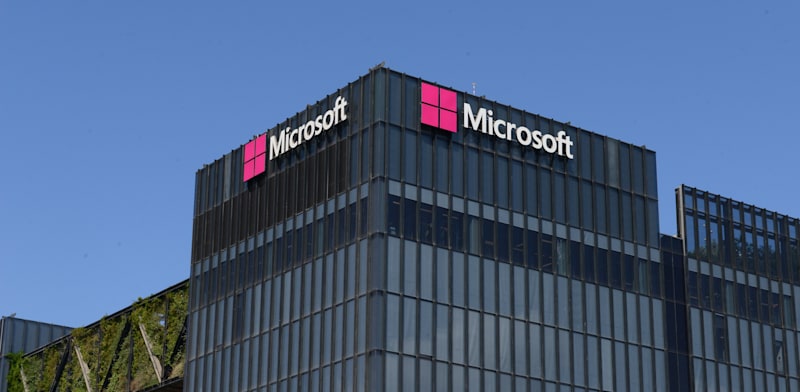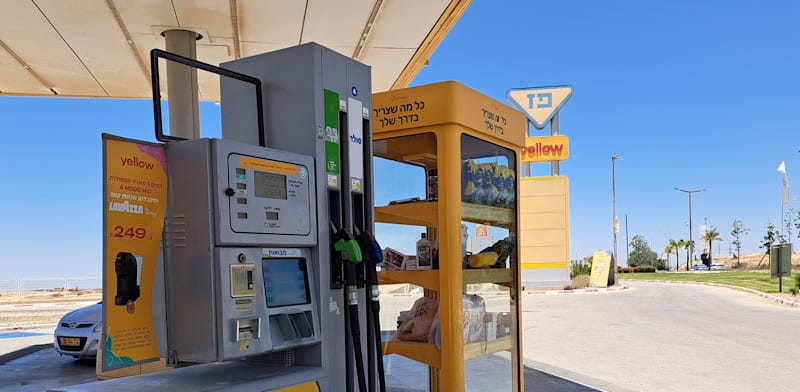ARTICLE AD BOX
For the first time in a decade, Israel's biggest private employer has less than 10,000 employees. "Globes" talks to Intel Israel employees and former employees.
The corridors in Intel Israel's development center have been much quieter these days, as the biggest wave of layoffs the company has ever known is about to be completed, and those remaining get used to a new reality.
Former Intel Israel employees have told "Globes" that the situation at the chipmaker is the complicated one of an enterprise operating under pressure and feeling overwhelmed, due to an acute liquidity crisis at the global parent company.
The company's share price has fallen 50% since the start of 2024, and the company's losses in the last quarter rose to $1.6 billion. The global streamlining plan, announced in August by CEO, Pat Gelsinger, included 15,000-17,000 layoffs worldwide.
At Intel Israel, the biggest private employer in the country, the layoffs began later than the rest of the world, in the days after the holidays, and hit 15% and 20% of the company's 7,000 development employees in Israel, according to estimates by former employees who spoke to "Globes."
These numbers include those who left voluntarily as well as those who were fired. A rough assessment puts these numbers at between 1,000 and 1,400 Intel Israel development centers employees. The activities of the 4,000 employees at the Kiryat Gat production plant have not been affected.
This means that the overall number of employees at Intel Israel will fall below the 10,000 mark, for the first time in a decade. In 2015, the company reported that it had exceeded 10,000 employees for the first time and until recently Intel Israel had 11,000 employees. Now, Intel is comparable in size in Israel to Rafael, a government company that has 9,500 employees, while Israel Aerospace Industries (IAI), also government owned, has 14,000 employees. However, Intel Israel is still larger than Nvidia, which has over 4,000 employees in Israel, while Microsoft Israel has over 3,000 employees, and Apple and Google, each have over 2,000 employees in Israel.
Expectations and frustrations
Employees remaining at Intel Israel talk of a drawn-out layoff process conducted without much transparency, causing expectation and frustration that Israelis are not used at other tech companies, where layoffs are short and sharp. Intel announced the layoffs in August, and the process took place gradually in October and November, and will only be completed in December.
"What disappoints us most has been the lack of transparency - that we are not told the truth," a senior employee at the company tells "Globes." According to him, the current wave of layoffs has been the "biggest and cruelest" ever in Israel. Although he was not directly affected, he says the move has also hurt the employees who stayed.
RELATED ARTICLES
"Many managers knew a month in advance who was slated for layoff, but they were forbidden to say. An employee slated for layoff sits with his team, and the manager has to give him assignments when he knows what is to come - it was very unpleasant." He added, "Many people left, good people, at all levels and from almost all departments, people we will miss later."
Another employee, whose position was as a manager in the software field at the company's center in Haifa, tells Globes that the layoffs also hurt experienced development people like him. He says, "There was diversity in those who were dismissed, some went because projects were closed and some because it was an opportunity for managers to get rid of certain people." However, he adds that overall in his opinion "The company was fair in terms of the layoffs."
An employee who is staying at the company tells "Globes" that although those who remain have a sense pf relief, "What is especially worrying is that it seems that the senior management continues to make crazy and bad decisions." According to him, the feeling is that the company has not stabilized yet. "The conduct over the exit from the crisis is very dispiriting," he says.
Veterans left voluntarily
Estimates are that the layoffs were conducted at all of Intel's development centers in Israel - Haifa, Petah Tikva and Jerusalem, while some projects were more affected than others. Intel tried not to harm core processors activity, and instead chose to cut projects in the field of wireless and cellular communications and video cards, including those used in AI.
The patterns of the layoffs point to an interesting trend: a former employee who was fired says, "While many veterans accepted the voluntary retirement plan, young people were hardly touched because there is not much point in it as they do not have high salaries and there is no justification for firing them unless someone isn't functioning". He says that with team leaders, closing down projects was used as a reason for dismissal: "When it was a team leader who had half of the projects cut from him, it was used as an excuse. Some people who worked on those projects were also fired." In the current situation, according to the source, most of those fired had worked for the company for less than 10 years.
U-turn on leasing and coffee
The lengthy streamlining process in Israel was also accompanied by frequent changes in employment conditions and their deterioration. In September, Intel informed development employees in Israel about the cancellation of the company's car leasing program. Employees with leased cars were required to find alternative transport solutions, and according to law, if a change constitutes a substantial violation of employment conditions, they had the option of resigning. Cancellation of the leasing cost about NIS 4,000 in some employees' salaries, sources say.
One of the moves that provoked the most media coverage was that Intel decided to close coffee stations in the company's offices. According to reports, a few weeks ago Intel employees worldwide discovered signs one morning announcing that they would no longer be able to obtain coffee except for a fee. The move, which took place without prior notice, provoked a wave of criticism and received widespread negative resonance and memes on social networks, and in the entire industry.
Intel employees and managers saw this step, despite being a relatively small financial saving, as a worrying signal about the company's situation as well as a direct hit to morale. Now, according to reports, Intel has gone back on both of its decisions, both on coffee and car leasing. However, new employees will receive offers for private leasing that is not financed by Intel, as is customary at most tech companies today.
Intel responded: "As part of the extensive cost-cutting plan that we announced in August, we are forced to make difficult but necessary decisions. These are difficult decisions that we make, and we treat employees with sensitivity and respect. These changes support our strategy to become a leaner, simpler and more flexible company, with the aim of positioning Intel for long-term sustainable growth."
Published by Globes, Israel business news - en.globes.co.il - on November 12, 2024.
© Copyright of Globes Publisher Itonut (1983) Ltd., 2024.

 3 months ago
161
3 months ago
161







 English (US) ·
English (US) ·